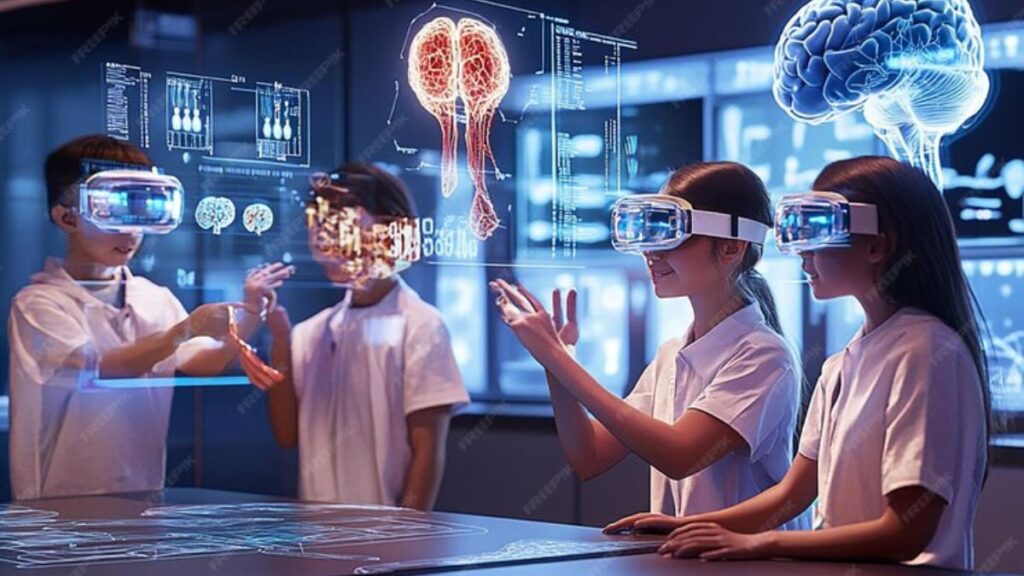Researchers at the University of Texas at Austin have developed a universal brain-computer interface that enables users to play games using only their thoughts. This technology incorporates machine learning capabilities, allowing it to self-calibrate and adapt to individual users quickly. The interface aims to improve brain function and neural plasticity. Neural Interfaces on Future Poker Gameplay, particularly brain computers, enable direct communication between the human brain and computer systems. These interfaces interpret electrical signals from the brain, allowing players to control game actions through thought alone.
In the context of poker, neural interfaces could revolutionize gameplay dynamics by providing real-time feedback on emotional and cognitive states. For example, brain computers can measure stress, focus, and excitement-related brain activity, making this technology particularly beneficial for online poker. Players could maintain composure and make more calculated decisions, potentially raising the overall skill level of the game. Furthermore, the use of neural interfaces could introduce new strategic elements. Players may develop unique strategies based on their ability to control their mental states, using biofeedback to optimize performance.
AI Advancements and Poker Algorithms
AI-powered poker bots such as Libratus and Pluribus have already demonstrated superior strategic capabilities when playing poker online. These bots utilize machine learning techniques, including deep reinforcement learning, to analyze data, make strategic decisions, and adapt to opponents over time. Poker, a game of imperfect information, presents a challenge for artificial intelligence, but algorithms like DeepStack have been developed to handle information asymmetry and produce difficult-to-exploit strategies. In a study involving 44,000 hands of poker, the DeepStack algorithm defeated professional players in heads-up no-limit Texas hold’em.
The integration of AI in poker has led to the development of sophisticated tools that enhance gameplay, such as hand analysis software, training programs, and solver tools. These tools provide real-time insights and help players improve their decision-making processes. For instance, spiking neural networks are being explored for their potential applications in poker games, particularly in neuromorphic hardware. The use of advanced algorithms and neural networks aids in better strategizing, allowing players to refine their skills and consistently make data-driven decisions.
Ethical and Practical Considerations
The implementation of Neural Interfaces on Future Poker Gameplay raises several ethical and practical concerns. The ability to monitor and potentially manipulate a player’s mental state introduces questions about privacy and consent. Clear guidelines must be established on how this data is used and who has access to it. Additionally, the impact of this technology on the fairness of the game must be carefully considered to ensure that players without access to neural interfaces are not at a significant disadvantage.
The current state of brain-computer interface technology still faces challenges, such as the need for extensive calibration and the difficulty of accurately interpreting brain signals. However, ongoing advancements are making these systems more user-friendly and universally applicable. As researchers develop interfaces requiring minimal calibration, the technology could become more accessible to a wider audience. Eventually, neural interfaces may become a standard part of competitive gaming, including poker, further blurring the line between human skill and technological enhancement.
Cognitive Enhancements Through Neural Interfaces
A study on the impact of poker gambling highlights the involvement of executive control processes and emotion regulation in gameplay. Poker players demonstrate greater efficiency in decision-making tasks due to their ability to handle complex virtual card scenarios. Functional Magnetic Resonance Imaging (fMRI) studies have shown that impaired performance in decision-making tasks is linked to diminished activity in the ventromedial prefrontal cortex, or increased neural activity associated with reward processing.
In the context of neural interfaces, these findings suggest that brain-computer interfaces could enhance cognitive engagement and decision-making efficiency. Players may gain more precise control over their gaming strategies by integrating these interfaces into gameplay. The technology could also enable adaptive poker games that respond to the player’s mental and emotional states, creating more personalized and challenging experiences. Games could dynamically adjust to a player’s strategic approach and emotional state, further enhancing the immersive quality of the experience.
Additionally, neural interfaces could help players develop better psychological endurance, leading to improved performance in high-pressure scenarios. By measuring brain activity related to stress, focus, and excitement, brain computers provide real-time feedback that players can use to maintain composure and optimize their decisions. This capability is especially relevant in competitive settings, where maintaining psychological balance is essential for consistent success.
The Future of Poker with Neural Interfaces
Looking ahead, the integration of neural interfaces into poker could lead to a dramatic shift in how the game is played. Real-time biofeedback may become a critical tool for players to maintain control over their cognitive and emotional states during gameplay. Coupled with AI advancements, these interfaces could provide detailed insights into a player’s decision-making process, enabling deeper analysis and strategy development. Adaptive poker systems may evolve to automatically adjust difficulty based on a player’s brain activity, making the game more challenging for advanced players and more accessible for beginners.
As neural interfaces become more sophisticated, they could redefine poker as a game that not only tests cognitive skills but also rewards emotional resilience and mental focus. However, this technological shift will also require addressing the ethical and practical concerns associated with brain-computer interfaces. Ensuring fair play, protecting privacy, and maintaining the spirit of poker as a game of skill will be essential for the long-term integration of this technology.
Conclusion
The influence of neural interfaces on the future of poker gameplay presents exciting opportunities for cognitive enhancements, real-time feedback, and AI integration. These technologies have the potential to revolutionize the poker landscape, offering players new tools to optimize their performance and develop unique strategies based on biofeedback. However, as these technologies advance, careful attention must be given to ethical considerations, such as privacy and fairness, to maintain the integrity of the game. As we move closer to a future where neural interfaces and AI play a larger role in poker, the balance between technological advantage and human skill will continue to evolve, pushing the boundaries of what is possible in competitive gaming.







